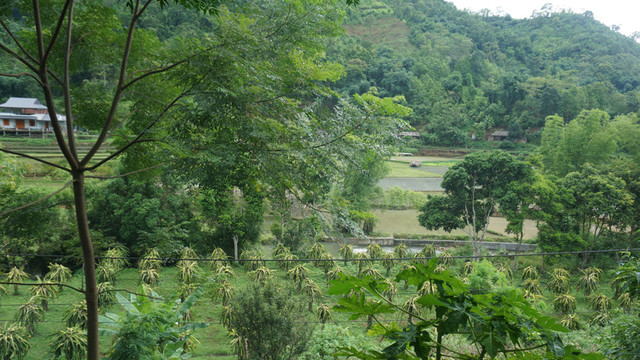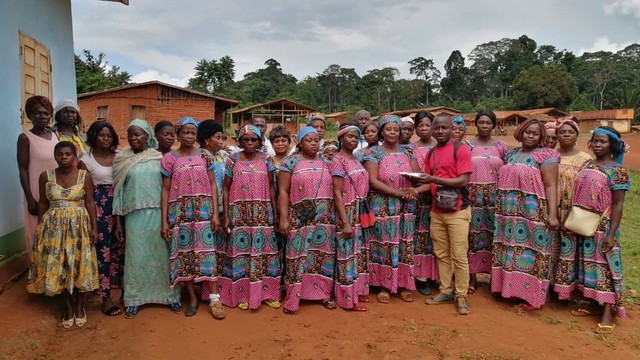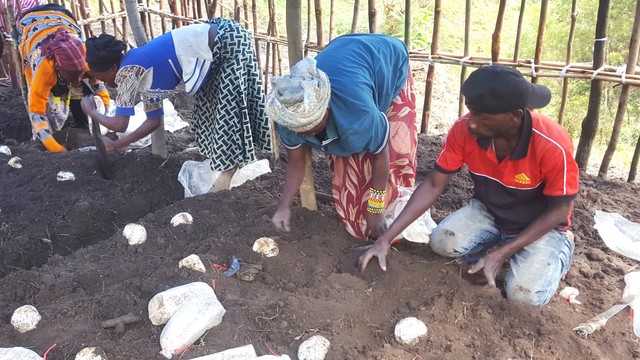Global partnership agrees new priorities for sustainable wildlife management
Ahead of the 2023 World Wildlife Day, 14 international organisations have joined forces to promote the sustainable use and conservation of wildlife resources.

A herd of elephants roam in Kenya (Photo: Tim Cronin/CIFOR, via Flickr, CC BY-NC-ND 2.0)
The Collaborative Partnership on Sustainable Wildlife Management (CPW) has announced a series of new priorities to coincide with World Wildlife Day (3 March).
The partnership comprises 14 international organisations, including IIED, with substantive mandates and programmes to promote the sustainable use and conservation of wildlife resources. CPW works to increase cooperation and coordination on sustainable wildlife management issues among its members and partners.
The new priorities are to:
- Support countries to ensure that the use and trade of wildlife is legal, sustainable and safe
- Raise awareness of the links between sustainable use of wildlife, food security, livelihoods and wellbeing, culture and the integrity of landscapes
- Promote the prevention, management and reduction of human-wildlife conflict and enhance coexistence
- Embed the sustainable use and management of wildlife in the One Health agenda, and
- Advocate for sustainable and inclusive wildlife economies.
The theme of this year’s World Wildlife Day, ‘Partnerships for wildlife conservation’, highlights the many ways in which people can make a positive difference for wildlife.
Disappearing wildlife
As a key part of natural ecosystems and broader landscapes, wildlife is also a valuable natural asset which has economic, social, and cultural values, from local to international levels.
But it is disappearing at a rapid pace. Partnerships are essential to reverse the decline of wildlife and sustain all life on earth. Partnerships can also help reconcile differences between different stakeholders and produce much needed new ideas and solutions.

Members of the Collaborative Partnership on Sustainable Wildlife Management; IIED's Dily Roe is seventh from the left (Photo: CPW)
March also marks the 50th anniversary of the Convention on International Trade in Endangered Species of Wild Fauna and Flora (CITES) and the 10th anniversary of CPW.
CPW chair, Ivonne Higuero, also secretary-general of CITES, said: "When the CPW was established sustainable use and management of wildlife was difficult to find on the political agenda.
“It is good news that, on its 10th anniversary, we can affirm that the importance of sustainable use and management of wildlife have been recognised in the Intergovernmental Science-Policy Platform on Biodiversity and Ecosystem Services Assessment (IPBES) report on the sustainable use of wild species and in several targets of the Kunming-Montreal global biodiversity framework."
Vice-chair Dilys Roe, also IIED biodiversity team leader and chair of the IUCN Sustainable Use and Livelihoods (SULi) Specialist Group, added: “With these new thematic objectives, we hope that we will be well-placed to support collective efforts to support countries to implement the newly adopted Kunming-Montreal global biodiversity framework and meet their obligations under the biodiversity-related multilateral environmental agreements.”
CPW was established at the 16th meeting of the parties to CITES in 2013. Its initial focus was on terrestrial vertebrate wildlife, when it was tasked with developing guidance for a sustainable wild meat sector.
More recently, at the 14th meeting of the CPW in July 2022, partners recognised that this scope should be extended to address the broader issues of sustainable use of wild species.
IIED is involved in a number of projects that contribute to the CPW’s objectives. This includes work on:
- Strengthening the role of communities in interventions to tackle illegal wildlife trade
- Understanding of why people eat wild meat, and
- Human-wildlife conflict (PDF).
See more of our work on conservation, communities and equity.


